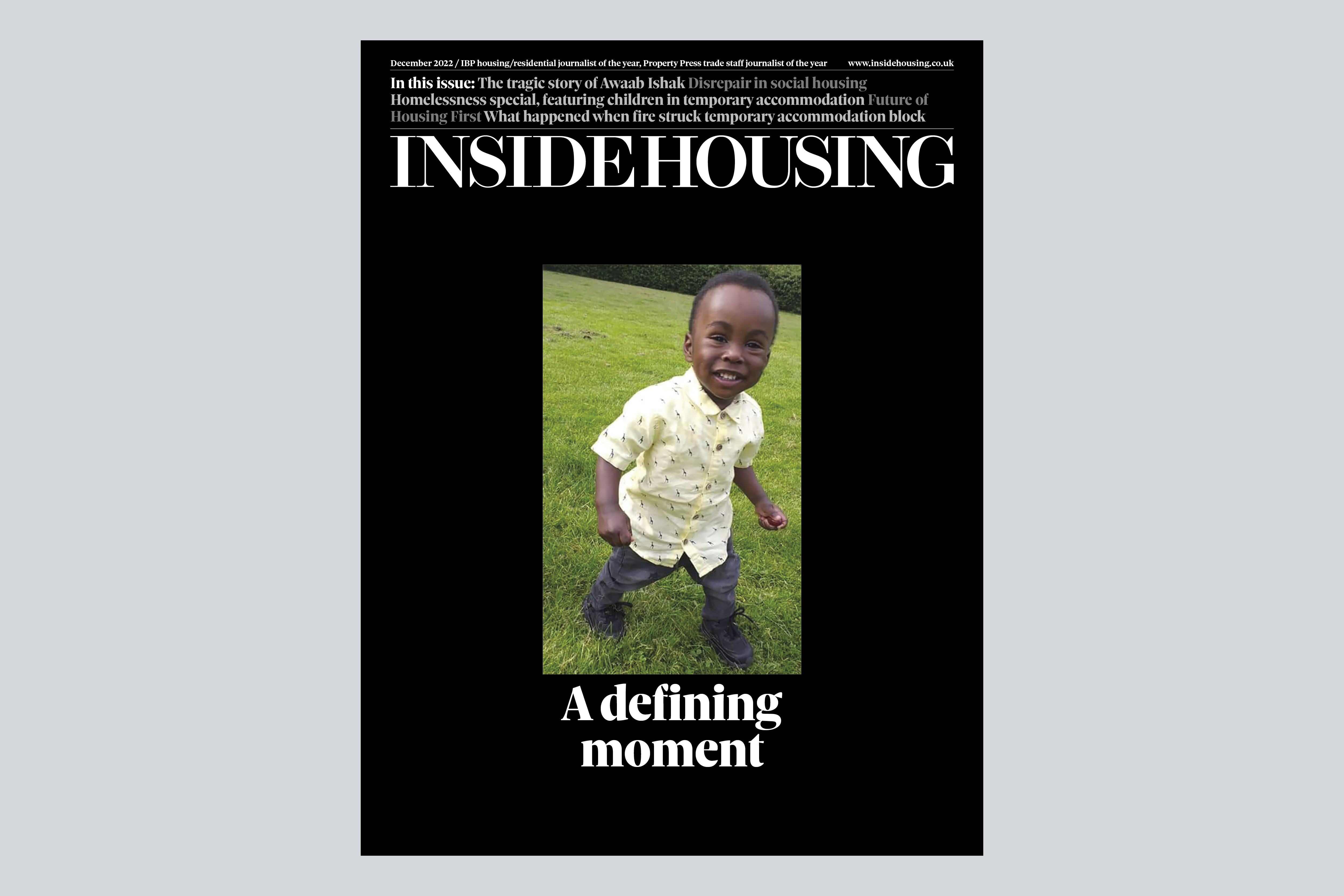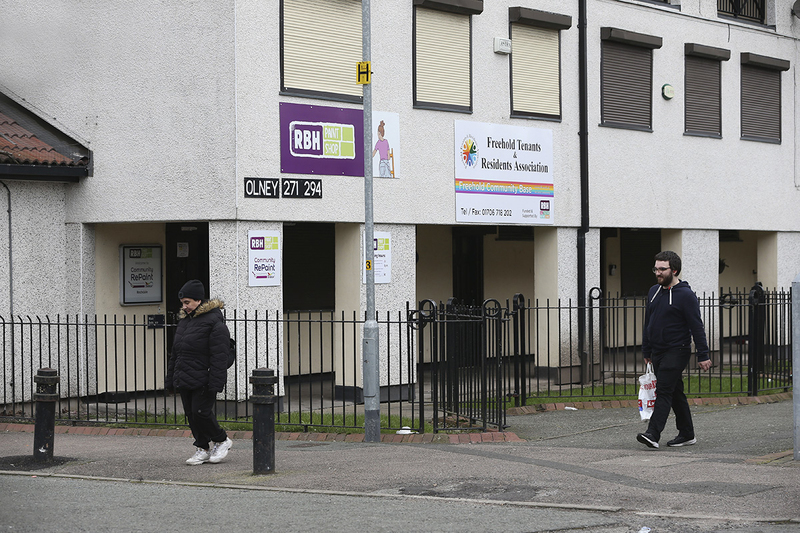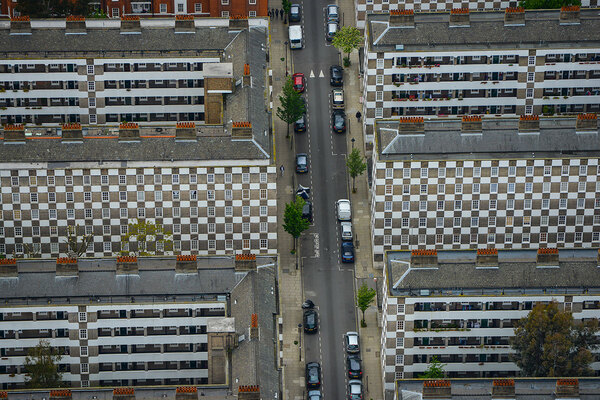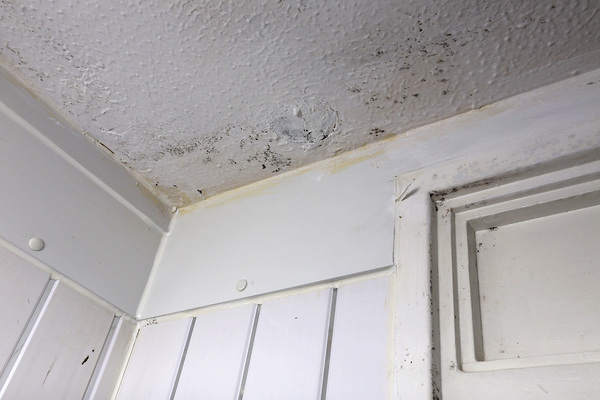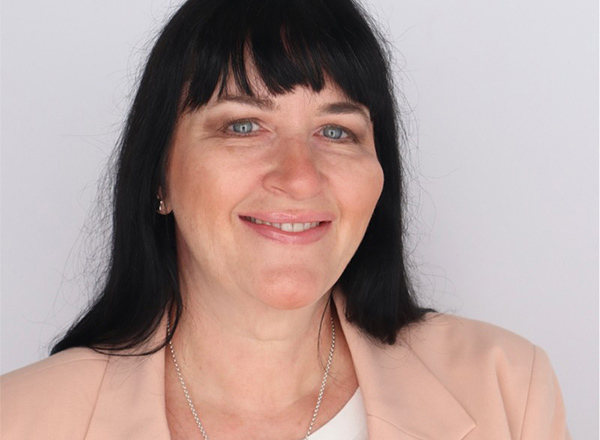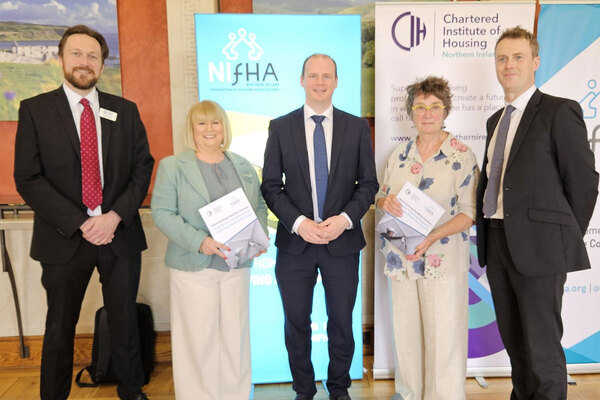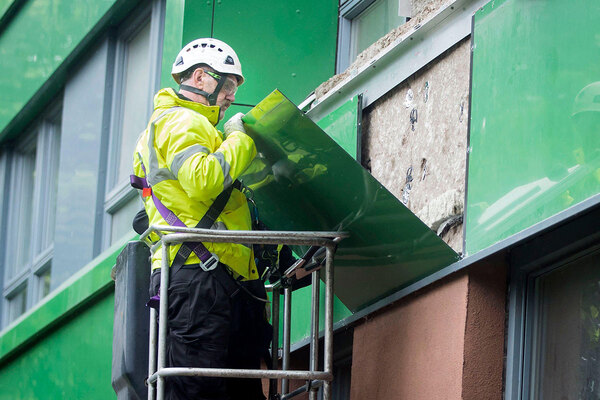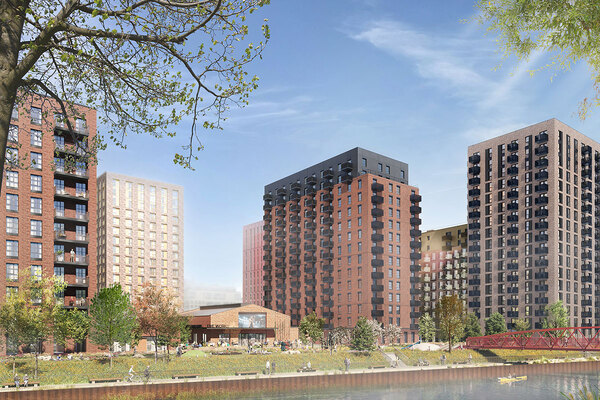A year on from the inquest into Awaab Ishak’s death, what has changed at Rochdale Boroughwide Housing?
Last November, the inquest into the death of two-year-old Awaab Ishak found it was caused by prolonged exposure to damp and mould. The case caused shockwaves and changes to the law. But at Rochdale Boroughwide Housing, which owned the flat where he lived, what has happened? Grainne Cuffe reports
“There’s a lot to do,” says Amanda Newton. She is speaking to Inside Housing a month-and-a-half after taking over as chief executive of troubled Rochdale Boroughwide Housing (RBH). We are also speaking one year since the conclusion of the inquest into the tragic death of Awaab Ishak. On 15 November 2022, the inquest found the two-year-old died from a respiratory condition caused by prolonged exposure to mould in an RBH flat.
RBH was condemned nationwide. Awaab’s father, Faisal Abdullah, had repeatedly complained about the condition of their home. Instead of helping, RBH staff blamed the family’s lifestyle for the state of the property. This included an assumption about “ritual bathing” and a “style of cooking by boiling food”, which appears to have been based on their race. In fact, the inquest found that the poor condition of the flat was down to an inadequate ventilation system.
RBH waited almost two years after Awaab’s death in December 2020 to survey the homes on the Freehold Estate and, when it did, almost 80% of the properties had some level of damp and mould.
Since the inquest on the horrific tragedy concluded, RBH has been delivering a recovery plan. A year on, Inside Housing wanted to find out what progress it has made. What has happened at RBH? And why have some of the changes, implemented to bring the landlord into compliance, been so controversial with residents?
A defining moment
Senior coroner Joanne Kearsley said at the inquest that “the tragic death of Awaab will, and should, be a defining moment for the housing sector”. The verdict had far-reaching implications. Many landlords set up teams, action plans and created new policies around damp and mould. Awaab’s Law, which will give tenants living in mouldy homes more rights and protections, and set strict timelines for addressing disrepair, was included in the Social Housing (Regulation) Act.
The Regulator of Social Housing asked that all social landlords with more than 1,000 homes submit evidence of their approach to damp and mould. The responses revealed that up to 160,000 social homes had “notable” problems, with a further 8,000 so severe that they “pose a serious and immediate risk to health”.
Following a review, the government published new guidance on damp and mould in September.
At RBH, the changes have been profound. The board – after initial reluctance – sacked its former chief executive Gareth Swarbrick after the inquest and a new interim boss, Yvonne Arrowsmith, was brought in. All but one member of the board was replaced.
In December, the English regulator downgraded RBH to non-compliant for governance. The landlord was later the subject of a harrowing special report by the Housing Ombudsman, which found a culture of “dehumanisation”.
Before Ms Arrowsmith left the organisation in September, she said: “RBH is in a much better place than it was.” And there have been positive changes. RBH is investing £1.2m in the Freehold Estate, installing ventilation systems to address the disrepair. It has established a damp and mould team, and is undertaking a stock condition survey of all its properties. It agreed to invest an extra £45m in its homes over the next five years. The landlord also pledged to speed up its replacement programme of kitchens, bathrooms and central heating systems.
A major issue of contention was RBH’s plans to knock down four blocks, known as the Seven Sisters, at College Bank, after RBH previously said it would be too expensive to refurbish. Residents and campaigners called for refurbishment instead of demolition. RBH has since brought Legal & General on board and is exploring other options, including retaining the blocks.
Mark Slater, chair of the Rochdale Branch of Greater Manchester Tenants Union (GMTU), says this is “good progress”. He adds: “We’re really positive about that.”
Mr Slater is a tenant of RBH and was recently also elected as a tenant representative on the landlord’s representative body. Controversial changes to the body, which is made up of tenants and staff, were voted through by RBH members in early November. Before the shake-up, the representative body appointed board members, approved the landlord’s corporate strategy and approved board members’ and the executive team’s pay. Now, these powers have been removed. But it has gained a new power to conduct three scrutiny reviews per year. RBH says the move is necessary for the association to become compliant for governance again.
Ms Newton, who joined RBH in September, tells Inside Housing: “The Governance and Financial Viability Standard is really clear that the accountability for setting strategy, appointing and removing board members, scrutinising operational performance, ensuring that we deliver the strategy, and the customer voice piece all sits with the board. Under our current rules, the accountability sits with the representative body, so straight away we are non-compliant.” The new rules will come into effect a few weeks on from the vote, once registered by the Financial Conduct Authority.
Mr Slater says he has mixed feelings. “They’ve got to be careful in terms of taking away the tenant’s voice. If it was me, do I think I would be doing it? Probably not.
“But I understand the dynamics in trying to get this package of measures together, so that they can access more central government funding and they can access private funding. That’s really important.”
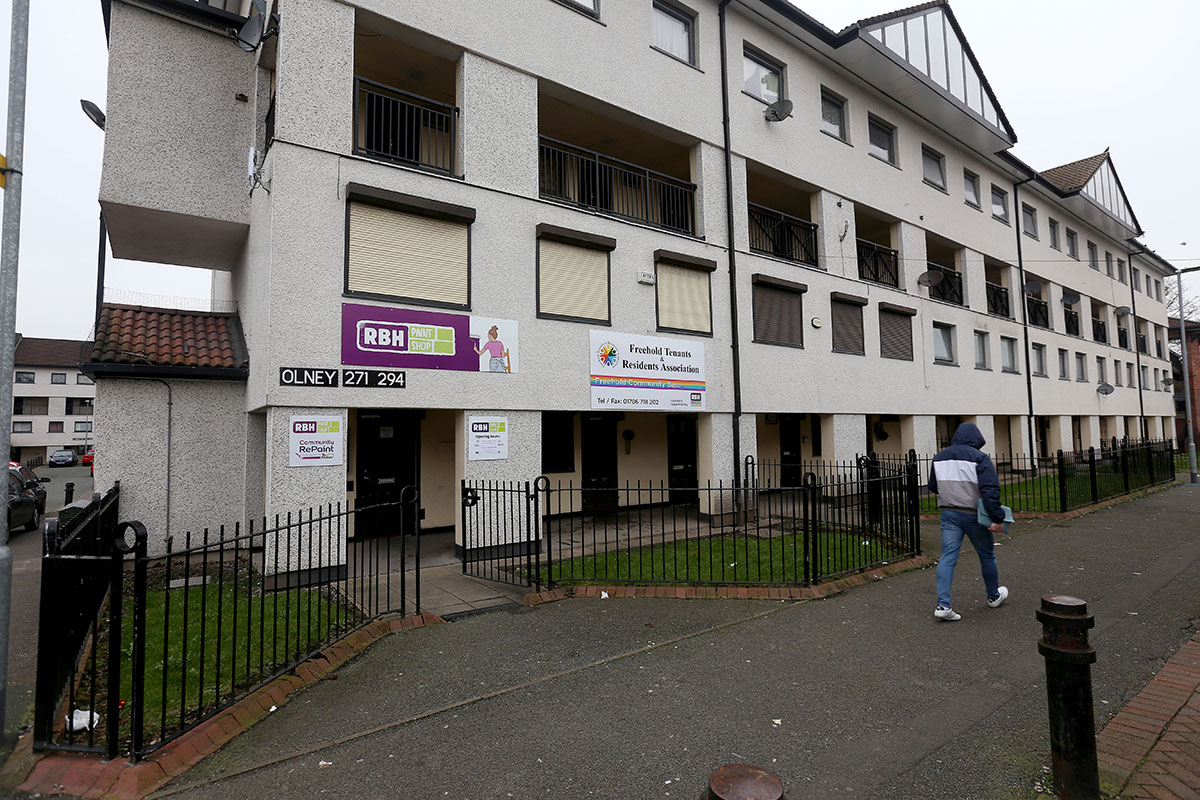
Others have less complicated feelings. Rochdale MP Tony Lloyd and councillor Daniel Meredith wrote to the regulator, saying they and others “believe that [the changes go] against the mutual co-operative of RBH”.
Saiqa Naz, a campaigner against the Seven Sisters demolition plans, says the move has caused residents distress and has “undone” some of the trust Ms Arrowsmith built with them. “It saddens me that they seem not to have learned much from what happened with Awaab, that at a time where they should be repairing relationships with residents, they are causing them distress, when they would go further working with residents [rather] than leaving them behind.”
Ms Newton argues that the move is an “exchange of theoretical power for genuine voice”.
“Some of the feedback we’ve had from the rep body through this process has been that they’ve always felt like the decisions were made by the board and they were just rubber-stamping them. It’s a tokenistic approach to engagement,” she says, adding that it is about making sure tenants are involved “at every level” in the development of decisions.
“Some of the feedback we’ve had from the rep body through this process has been that they’ve always felt like the decisions were made by the board and they were just rubber-stamping them. It’s a tokenistic approach to engagement”
Ben Clay, an organiser at GMTU, says RBH has dedicated staff “trying to make up for poor management decisions, and the neglect of social housing tenants and their homes in the past”. He says employees reported more “openness to challenge” while Ms Arrowsmith was in post. “What concerns us most is the danger that RBH will slip back into bad habits, stop listening and genuinely involving residents, and retreat to a command and control bunker mentality. [This] is exemplified by the attempt to impose demutualisation by stealth, by stripping the tenant and employees’ representative body, the heart of the mutual, of any power to direct
the strategy of RBH, or hold the executive team and the board accountable.”
He says GMTU feels RBH has “not yet acknowledged the institutional racism that was clearly demonstrated in the Housing Ombudsman’s special report”, and “we know that along with disability discrimination, these
are areas [where] RBH has a lot of work to do”.
£1.2m
Investment in the Freehold Estate by RBH, where Awaab Ishak lived
£45m
Investment in all homes by RBH over the next five years
160k
Social homes with “notable” damp and mould problems across the sector, according to the regulator
Ombudsman findings
In March, the ombudsman released the findings of its investigation into RBH, which uncovered “dehumanisation”, “othering” and a pattern of “exclusion and marginalisation”. “Combined together, it paints a disturbing picture of residents being judged entirely by staff members’ held prejudices, lazy assumptions and an attitude towards asylum seekers and refugees that is wholly unacceptable,” it said.
Inside Housing learned that during an RBH workshop on damp and mould in May, six months after the inquest and two-and-a-half years after Awaab died, a presentation described “ritual bathing” as a cause of condensation. Ms Newton says the person was an interim staff member who was fired the next day, and staff attending the session challenged it immediately.
What is RBH doing to tackle discriminatory attitudes? The landlord has appointed an equality lead and delivered ‘customer excellence’ training, with a “very distinct theme around respect and empowering others”. One of the issues raised in the ombudsman’s report was that staff did not feel empowered to challenge RBH when they disagreed with its approach.
“Our equality lead has also been engaging with groups that we’ve never engaged with before, like representative groups for asylum seekers and refugees. We’ve got really strong links with faith groups now, who are helping to inform what we do and sense check what we do, and lots of engagement with community leaders.
“Fundamentally, for me, it’s about cultural curiosity,” Ms Newton says.
Andy Roche, an RBH tenant who is autistic, says: “Nothing much seems to have changed since the inquest.” His home where he lives with his partner is “becoming increasingly damp”.

“We told RBH about the mould in our home at the end of last year, but until I started tweeting about it a couple of days ago, we were ignored,” he says.
Mr Roche says it is “really disappointing to see the new chief executive personally backing the disempowerment of the tenant and employee members”, and it makes him feel “a little hopeless”.
He says RBH is “still having difficulty respecting the reasonable adjustments my partner and I have been requesting for years, like no cold calling and written communication”. Mr Roche says RBH staff incorrectly accused him of aggressive behaviour after he complained about the landlord failing to respond to an emergency boiler repair.
“So now I am frightened about having them in my home, and we have had to arrange for someone else to be present when they come. I actually feel more vulnerable now than I ever have before,” he says.
Ms Newton did not wish to comment on an individual case, but in terms of understanding people’s needs, she says RBH is “very focused” on improving its customer data. “We’ve recently had a data audit, which gave us some really good feedback about the quality of that data. It identified some gaps, but at least we know the gaps that we’re filling, which isn’t the case across the sector, I would say, in an informed way.”
RBH is undertaking tenancy audits. “That is very focused on understanding the adjustments that we need to make for people,” Ms Newton says, including for hidden disabilities “where we have to be much more astute and much more flexible in the way we do things”.
RBH is now two-thirds of the way through its recovery plan, but still has a way to go. In the year ahead, it will develop a new corporate plan “focused on getting back to our core business” and focus on cultural development and examining its vision and values.
Ms Newton adds that the landlord will look to improve its data and systems, which was a “massive problem” and “isn’t fixed yet”. “We’ve made some really bold promises around how this [mutual] will work going forwards between the board, the executive and the representative body, and then the wider membership. We need to bring those to life now,” she says.
Sign up for our asset management newsletter
Already have an account? Click here to manage your newsletters
